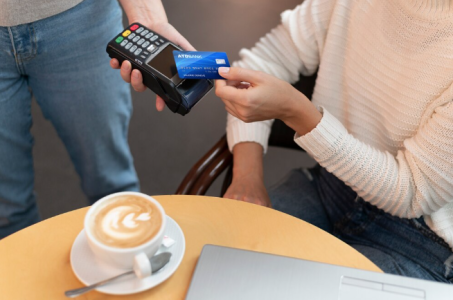Shoppers hit with soaring card surcharges—are you affected too?
By
VanessaC
- Replies 29
The convenience of cashless transactions has become a double-edged sword for Australian consumers.
While the ease of 'tap and go' payments has undeniably transformed our shopping experience, it has also opened the door to a rising trend of card surcharges that are silently draining our wallets.
According to a recent report by the Reserve Bank of Australia (RBA), there has been a significant increase in card acceptance surcharges.
In 2022, 7.1 per cent of all in-person payments by credit and debit cards attracted a surcharge, up from 4 per cent in 2019.
This represents a staggering 77.5 per cent increase in just three years.
In 2022, the typical surcharge was 1.5 per cent across in-person and online card payments.
The RBA's findings suggest that as cash becomes increasingly obsolete, Australian consumers have grown more accepting of these surcharges.
The survey also indicated that fewer consumers would avoid a merchant who applies a surcharge than in 2019.
However, this acceptance comes at a cost, adding further strain to household budgets during a time of high inflation.
The RBA estimated the average costs for Eftpos (Electronic funds transfer at point of sale) to be less than 0.5 per cent, Visa and Mastercard debit between 0.5 per cent and 1 per cent, and Visa and Mastercard credit between 1 per cent and 1.5 per cent.
Surcharges tend to be highest for rewards cards, which can make the benefits of these cards less attractive.
Data from payments provider Tyro revealed that primarily smaller businesses, particularly in the hospitality industry, are increasingly resorting to surcharging.
In contrast, larger businesses like supermarkets tend to absorb card acceptance costs.
As of June 2023, 40 per cent of cafes and restaurants and over 40 per cent of pubs and bars levied surcharges in May 2023, compared to 25 per cent and 29 per cent, respectively, in May 2022.
Following the rules set by the RBA and enforced by the Australian Competition and Consumer Commission (ACCC), merchants are only supposed to charge the actual costs to the payment provider they use. Excessive payment surcharges are banned.
However, some businesses were found to charge a flat fee rather than a percentage surcharge, which should still reflect the merchants' costs.
As required by the ACCC, merchants must display surcharges when they are unavoidable.
The ban on excessive payment surcharges reportedly does not apply to BPAY, PayPal, Diners Club, American Express cards issued directly by American Express, or taxi fares.
The RBA report also highlighted the importance of using rewards cards strategically.
Sally Tindall, the Head of Research at comparison site RateCity, advised, 'If a merchant is going to charge you more for paying with a rewards credit card, the cost of the surcharge could easily outweigh the value of the points you'll collect.'
'When faced with a hefty surcharge for payment with a credit card, it’s good to have a debit card on hand.'
However, she added that if the merchant charges a flat fee regardless of your mode of payment, then you may as well collect the rewards.
The survey also showed a slight decline in the percentage of online card payments attracting a surcharge—from 9.2 per cent down to 8.5 per cent.
The ACCC has imposed financial penalties on Fitness First Australia (2018), Eurocar (2019), and Nine Entertainment in July (2021) for excessive payment surcharges. No financial penalties have been imposed since.
In contrast, since 2018, it has been unlawful in the United Kingdom and the European Union for retailers to charge additional fees when a consumer uses a particular credit or debit card.
The ban covers online purchases and includes other payment systems in the United Kingdom, like PayPal.
 What are your thoughts on card surcharges? Have you been hit with an unexpected fee? Share your experiences in the comments below.
What are your thoughts on card surcharges? Have you been hit with an unexpected fee? Share your experiences in the comments below.
While the ease of 'tap and go' payments has undeniably transformed our shopping experience, it has also opened the door to a rising trend of card surcharges that are silently draining our wallets.
According to a recent report by the Reserve Bank of Australia (RBA), there has been a significant increase in card acceptance surcharges.
In 2022, 7.1 per cent of all in-person payments by credit and debit cards attracted a surcharge, up from 4 per cent in 2019.
This represents a staggering 77.5 per cent increase in just three years.
In 2022, the typical surcharge was 1.5 per cent across in-person and online card payments.
The RBA's findings suggest that as cash becomes increasingly obsolete, Australian consumers have grown more accepting of these surcharges.
The survey also indicated that fewer consumers would avoid a merchant who applies a surcharge than in 2019.
However, this acceptance comes at a cost, adding further strain to household budgets during a time of high inflation.
The RBA estimated the average costs for Eftpos (Electronic funds transfer at point of sale) to be less than 0.5 per cent, Visa and Mastercard debit between 0.5 per cent and 1 per cent, and Visa and Mastercard credit between 1 per cent and 1.5 per cent.
Surcharges tend to be highest for rewards cards, which can make the benefits of these cards less attractive.
Data from payments provider Tyro revealed that primarily smaller businesses, particularly in the hospitality industry, are increasingly resorting to surcharging.
In contrast, larger businesses like supermarkets tend to absorb card acceptance costs.
As of June 2023, 40 per cent of cafes and restaurants and over 40 per cent of pubs and bars levied surcharges in May 2023, compared to 25 per cent and 29 per cent, respectively, in May 2022.
Following the rules set by the RBA and enforced by the Australian Competition and Consumer Commission (ACCC), merchants are only supposed to charge the actual costs to the payment provider they use. Excessive payment surcharges are banned.
However, some businesses were found to charge a flat fee rather than a percentage surcharge, which should still reflect the merchants' costs.
As required by the ACCC, merchants must display surcharges when they are unavoidable.
The ban on excessive payment surcharges reportedly does not apply to BPAY, PayPal, Diners Club, American Express cards issued directly by American Express, or taxi fares.
The RBA report also highlighted the importance of using rewards cards strategically.
Sally Tindall, the Head of Research at comparison site RateCity, advised, 'If a merchant is going to charge you more for paying with a rewards credit card, the cost of the surcharge could easily outweigh the value of the points you'll collect.'
'When faced with a hefty surcharge for payment with a credit card, it’s good to have a debit card on hand.'
However, she added that if the merchant charges a flat fee regardless of your mode of payment, then you may as well collect the rewards.
The survey also showed a slight decline in the percentage of online card payments attracting a surcharge—from 9.2 per cent down to 8.5 per cent.
The ACCC has imposed financial penalties on Fitness First Australia (2018), Eurocar (2019), and Nine Entertainment in July (2021) for excessive payment surcharges. No financial penalties have been imposed since.
In contrast, since 2018, it has been unlawful in the United Kingdom and the European Union for retailers to charge additional fees when a consumer uses a particular credit or debit card.
The ban covers online purchases and includes other payment systems in the United Kingdom, like PayPal.
Key Takeaways
- There has been a 77.5 per cent increase in the application of card surcharges on in-person payments since 2019, according to a report by the Reserve Bank of Australia.
- Despite the rising cost, consumers are becoming more content with paying surcharges, and fewer are actively avoiding merchants who impose them compared to in the past.
- Small businesses, particularly in the hospitality industry, are increasingly levying surcharges, with the cost often absorbed by larger businesses such as supermarkets.
- Card payment surcharges for online payments have slightly decreased over time, while penalties have been imposed on companies for excessive payment surcharges.









